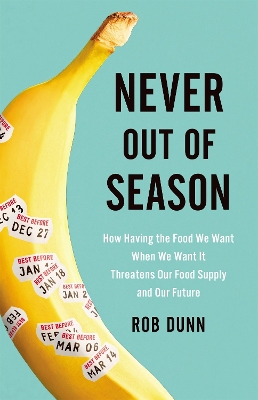Reviewed by Jeff Sexton on
Reading updates
- Started reading
- Finished reading
- 28 November, 2022: Reviewed

Did you know that 10 plants make up 80% of our plant-based food supply? That the bananas we eat today were standardized in the 1960s, into one consistent strain, and that they are succumbing to a pathogen that might wipe them out? That an $8 cup of coffee is just around the corner?
Our food supply is heavily and increasingly corporate, streamlined for efficiencies from seed to store. Those efficiencies make bananas and coffee cheap; make wheat, rice, and beef prevalent; and all but guarantee that food tastes the same every time we eat--and they also mean that the foods we depend on most are one bug or virus away from disappearing.
The lesson, as told by science writer and biologist Rob Dunn through rich history and science and via characters and scenes, is to eat the way we always used to--locally, in season, and with an eye towards preserving food quality for the human race. Rigorously researched and highly provocative, this is the book to read if you want to know about the future of our food.